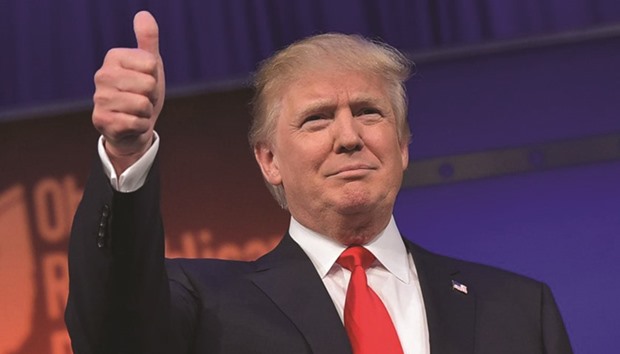As wealthy donors supporting Hillary Clinton pummel Donald Trump with negative ads, the Republican presidential candidate’s own backers are struggling to return fire, hurt in part by a late start and conflicting signals from the campaign.
In the latest setback, Thomas Barrack, a billionaire Los Angeles investor who said last month he’d gathered $32mn in commitments for a new super-political action committee supporting Trump, has decided not to donate to it or any other super-PAC, according to “Papa” Doug Manchester, a leading Trump fundraiser in California who has discussed the project with Barrack.
The group raised only about $2mn through the end of June, according to Yahoo News.
“Tom Barrack and I just decided we would support the campaign to the maximum we can,” Manchester said in an interview this week, referring to the roughly $450,000 maximum that an individual can donate to Trump and his party through a joint-fundraising committee. (A married couple can contribute $900,000.)
That’s a far cry from the multi-million-dollar cheques that Barrack suggested last month were flowing to the super-PAC he was promoting, known as Rebuild America Now. Through a spokeswoman, Barrack declined to comment.
Rebuild America Now is one of more than a half-dozen super-PACs jockeying for donors, so far without any emerging as the undisputed leader.
As of the most recent reports filed with the Federal Election Commission, none had raised more than $3mn, while the main PAC supporting Clinton had amassed more than $88mn and is now spending around $4mn a week on anti-Trump messages. The groups are due to disclose updated figures over the next week.
Trump didn’t begin actively soliciting funds for his campaign until May. And after winning the Republican primaries without major advertising campaigns, he has repeatedly expressed ambivalence about whether large-scale spending is even necessary.
In private conversations with donors, top campaign officials have sometimes given conflicting signals about which super-PAC they prefer, according to people familiar with the matter who spoke on condition of anonymity. And Trump has sent mixed messages about whether he wants the support of super-PACs at all.
Earlier this year, the Las Vegas casino mogul Sheldon Adelson told Trump he’d give $100mn to support the presidential bid and explored forming his own super-PAC to direct the spending. But Adelson isn’t currently pursuing his own super-PAC, according to Andrew Abboud, a top Adelson aide, confirming an earlier report in the Los Angeles Times. A spokesman for Adelson declined to comment on whether Adelson is sticking with the $100mn pledge.
The most recent super-PAC to enter the scene is Defeat Crooked Hillary, run by David Bossie, a longtime critic of the former secretary of state. The group is actually a repurposed PAC, originally formed by the New York hedge-fund manager Robert Mercer to support senator Ted Cruz’s presidential bid. The group had about $1.3mn left over at the end of May, and Bossie said that since then, Mercer made a “substantial” additional seven-figure contribution.
“You’ve seen what he’s done in the past. He just doesn’t do things small,” said Bossie. Mercer spent $13.5mn supporting Cruz and is already the second-biggest political donor of the 2016 election cycle, according to the Center for Responsive Politics.

Donald Trump
